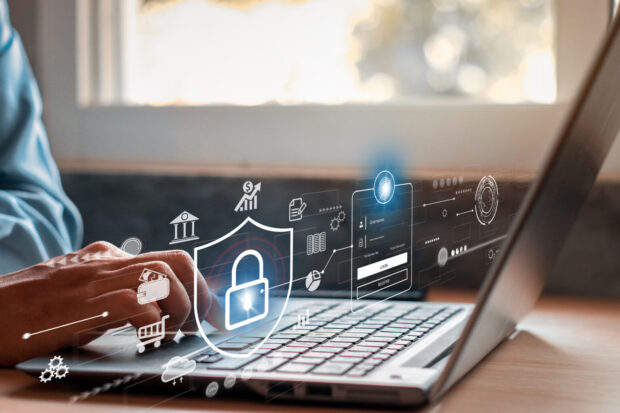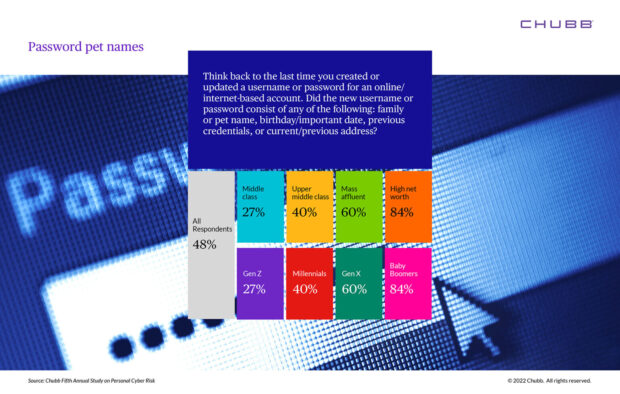According to a poll by Chubb of adults in the U.S. and Canada, a little more than half said they use multifactor authentication to log into online accounts, which is twice the number of people from a survey a year ago.
However, some poor cybersecurity behaviors remain common — half of those surveyed are still including the name of a pet or another identifiable name or date in the password, according to Chubb’s Fifth Annual Study on Personal Cyber Risk. Nearly 85 percent of high-net worth Americans and Canadians use such identifiable terms or dates in their passwords — more than three times the rate of middle-income respondents (27 percent), Chubb said.
Overall, Chub said, results of the survey reveal that awareness of cyber threats is high and growing. Respondents admit to being annoyed with being forced to change passwords and keep track of them — more than 60 percent each, the insurer said. Nevertheless, adoption of practices such as regularly clearing browser histories and using password protection apps, pop-up blockers and malware protection were up significantly from 2021.
“Our fifth annual report on personal cyber risk has a compelling narrative: Awareness of and concern over cyber threats is high and growing. At the same time, people are annoyed and frustrated by taking actions to protect themselves online. Thankfully, the gap between awareness and action has started to narrow,” said Ana Robic, division president, Chubb North America Personal Risk Services. “While the progress is encouraging, risky behaviors are still too prevalent. Individuals and families should remain vigilant in defending themselves against cyber perils and know that there are risk management solutions to help ensure protection in the event of a personal cyber incident.”
Respondents are also concerned about big-picture risks, such as the threat of large-scale cyber attacks that could cause widespread damage and chaos. Nearly 90 percent said they are concerned that there will be a significant cyber attack on the U.S. power grid, and about 85 percent said they are worried about the threat of a nation-state cyber attack.
Maybe as a result of the apparent increase in awareness, Chubb said personal cyber insurance is becoming more common. About 40 percent have a policy, with wealthy consumers much more likely to buy the coverage. The downside of this positive trend, according to Chubb, is that buyers of personal cyber protection are less likely to take precautions to protect themselves.






















 10 Do’s and Don’ts of a Smart ORSA Report
10 Do’s and Don’ts of a Smart ORSA Report  New Texas Law Requires Insurers Provide Reason for Declining or Canceling Policies
New Texas Law Requires Insurers Provide Reason for Declining or Canceling Policies  AI Claim Assistant Now Taking Auto Damage Claims Calls at Travelers
AI Claim Assistant Now Taking Auto Damage Claims Calls at Travelers  The Future of HR Is AI
The Future of HR Is AI 




